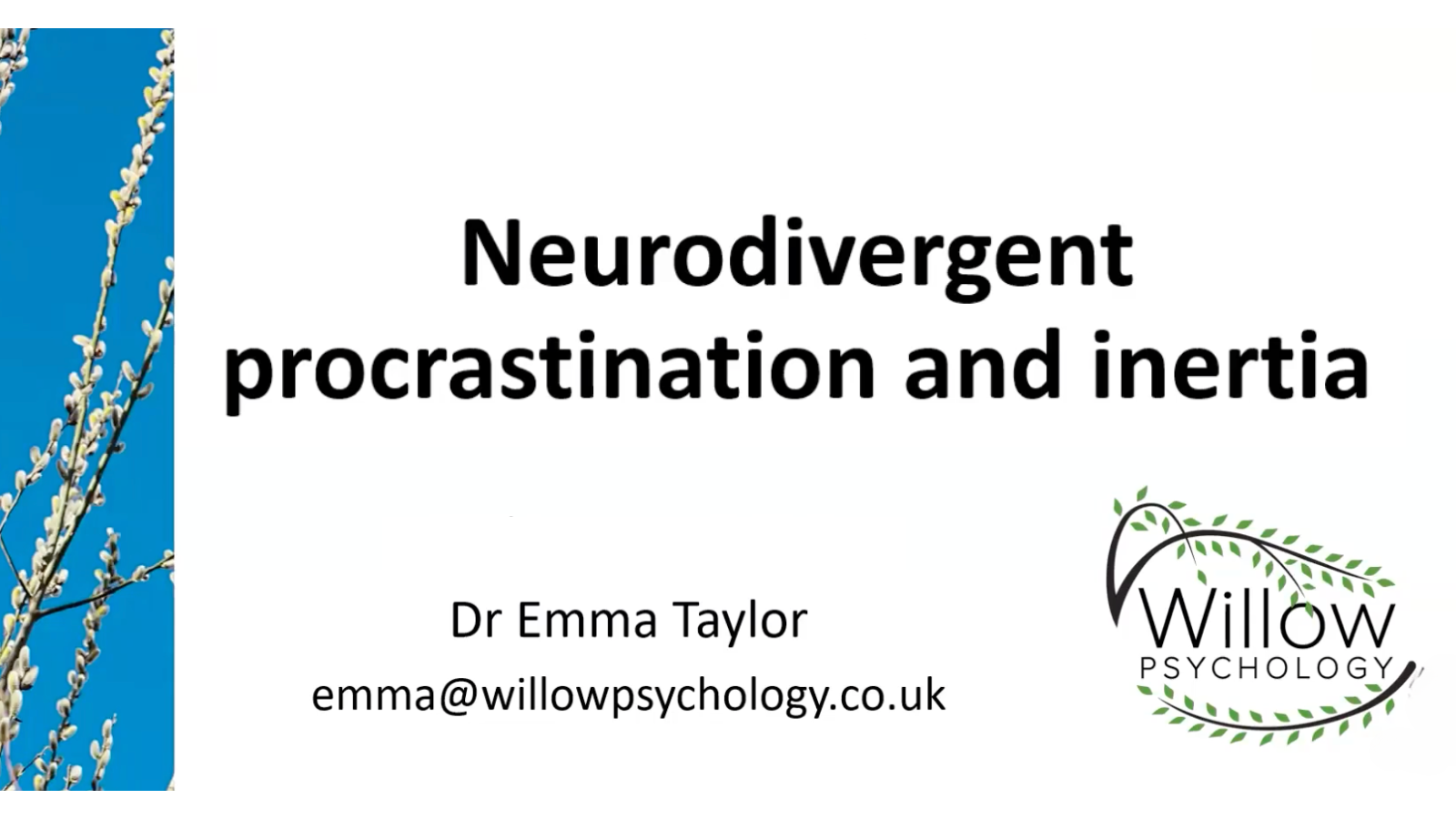Many neurodivergent people struggle with procrastination and inertia, and can get stuck in a cycle of forgetting, avoidance, overwhelm, and a build-up of un-done tasks and their consequences, resulting in worse mood and even more procrastination. This workshop will offer tools for understanding inertia and the different forms of procrastination, the specific obstacles to different tasks for different people, and practical techniques for becoming unstuck.
Learning Objective Participants Can Expect From This Event
- Understand the broad issues influencing procrastination and inertia, particularly for neurodivergent people
- Learn how to analyse specific instances of procrastination or inertia to understand what the obstacles are in order to work past them
- Break the cycle of procrastination and overwhelm by using practical strategies to move towards personally meaningful goals, small or large
Who is This Workshop Appropriate For?
- Neurodivergent people wanting to address their own procrastination/inertia, and people of any neurotype wanting to support neurodivergent therapy clients or loved ones
How May This Workshop Impact Your Practice?
- This will give you specific tools for analysing procrastination and inertia in order to work past it, around it and through it
Course Content
Presenter

Dr Emma Taylor is a Clinical Psychologist with over twenty years of experience working with neurodivergent adults and children in clinical, diagnostic and academic contexts. She works therapeutically with adults of all ages, genders and neurotypes, as well as carrying out formal diagnostic assessments for autism and ADHD, and providing supervision to other therapists. She has been practising mindfulness for twenty years, and uses it as part of her therapeutic work.


